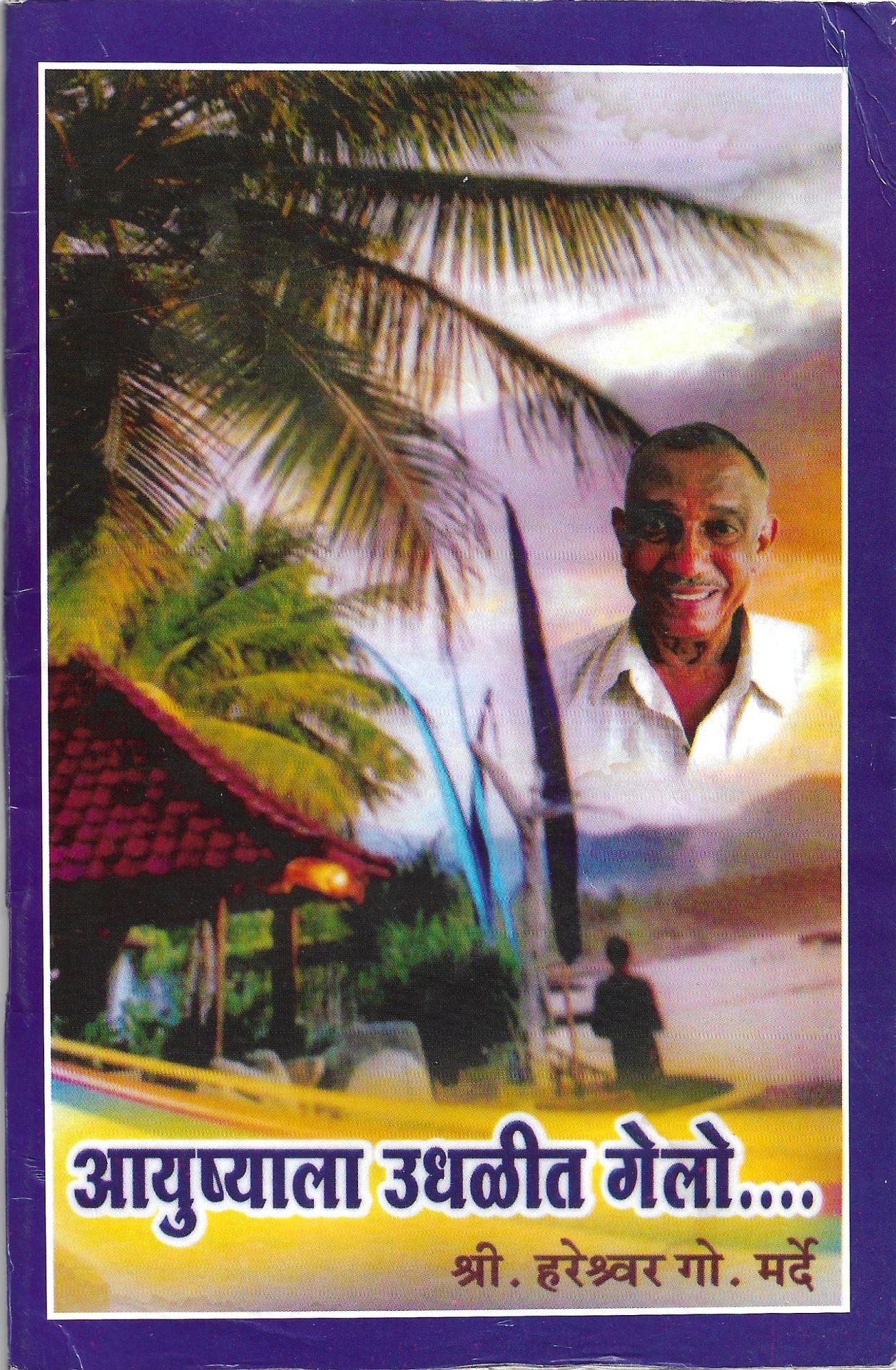Hareshwar Marde’s book cover
Hareshwar Gopal Marde, 88, was born in a koli (fishing caste) family in a small village called Ghivali. He would help his mother dry Bombay duck (or lizardfish) and madeli fish as a child. Education was neglected in the village community, and children would start working from an early age. Marde, however, was determined to complete his education, which he did at the school in Ghivali and then Tarapur High School.
His parents led a simple life and encouraged him to study. He went on to earn a bachelor degree from a college in Mumbai. Marde always believed in living a disciplined life and working towards the welfare of his community.
Marde was appointed the headmaster of the Fisheries School at Satpati in 1960. He continued to work there for four to five years before holding various positions in the Maharashtra Fisheries Department. His colleagues, community members and officials, all speak highly of Marde’s work and dedication towards encouraging fisheries education in the community. As a teacher, Marde would take the students out on a trawler to learn how to estimate the depth of the sea and cast nets for fishing. He believed education should include not just theoretical but also practical knowledge. During his tenure as Fisheries Training Officer, he tried to inculcate fisheries as a science to students (men aged 18-35 years); he would explain the breeding time of different fish species and the necessity of refraining from fishing during the breeding season. ‘Fisheries business requires patience and discipline, but fishermen are consumed by greed for money.’ Marde objected to the use of Persian nets, the reduction of mesh size, and the fishing of smaller fish. Impressed by his work, the Fisheries Department selected Marde for post-graduate training at the Central Fisheries Training Centre. Later, he was appointed district officer at Palghar Fisheries Department. He held many positions in the Fisheries Department in Mumbai, Thane, and Ratnagiri districts. He also held positions in different fisheries co-operative societies and other social organisations of the fishing community. His motto was to work towards giving the fishing community the benefits they deserved.
As a manager at the Satpati Machimaar Co-operative Society (1975–76), he set an example by bringing transparency into the management of the society. With the help of his skills and acumen, the co-operative society shifted from the kodi(piece-rate) to a weight-based system of fish selling. He also persuaded boat owners to sell their fresh fish, kilo-wise, directly to companies. Boat owners, at first opposed this but after noticing the 20 per cent profit margin, weight-based fresh fish selling became the norm. Marde worked effortlessly in every position he held and in every organisation he was part of to give back as much as he could to the fishing community.
After retiring in 1991, Marde continued his work. He started writing in a local periodical ‘Daryacha Raja’ (Daryameans sea, Raja means king, translating to ‘King of the Sea’), hoping to make a difference. Marde developed the habit of reading and recognised the importance of education at a young age. During his youth, he helped found the organisation Thane Zilla Machimaar Samaj Vidyarthi Sahayak Mandal, which worked for promoting and providing books, textbooks, and similar to hardworking students from the fishing community. Social work was ingrained in him from an early age. He continues to write in different periodicals and is well informed about happenings in the fisheries sector worldwide. In 2016, he penned an autobiography tracing his journey as a child from a small village and how he was able to give back to the community because of his education and hard work.
Ishita Patil and Nitya Rao
